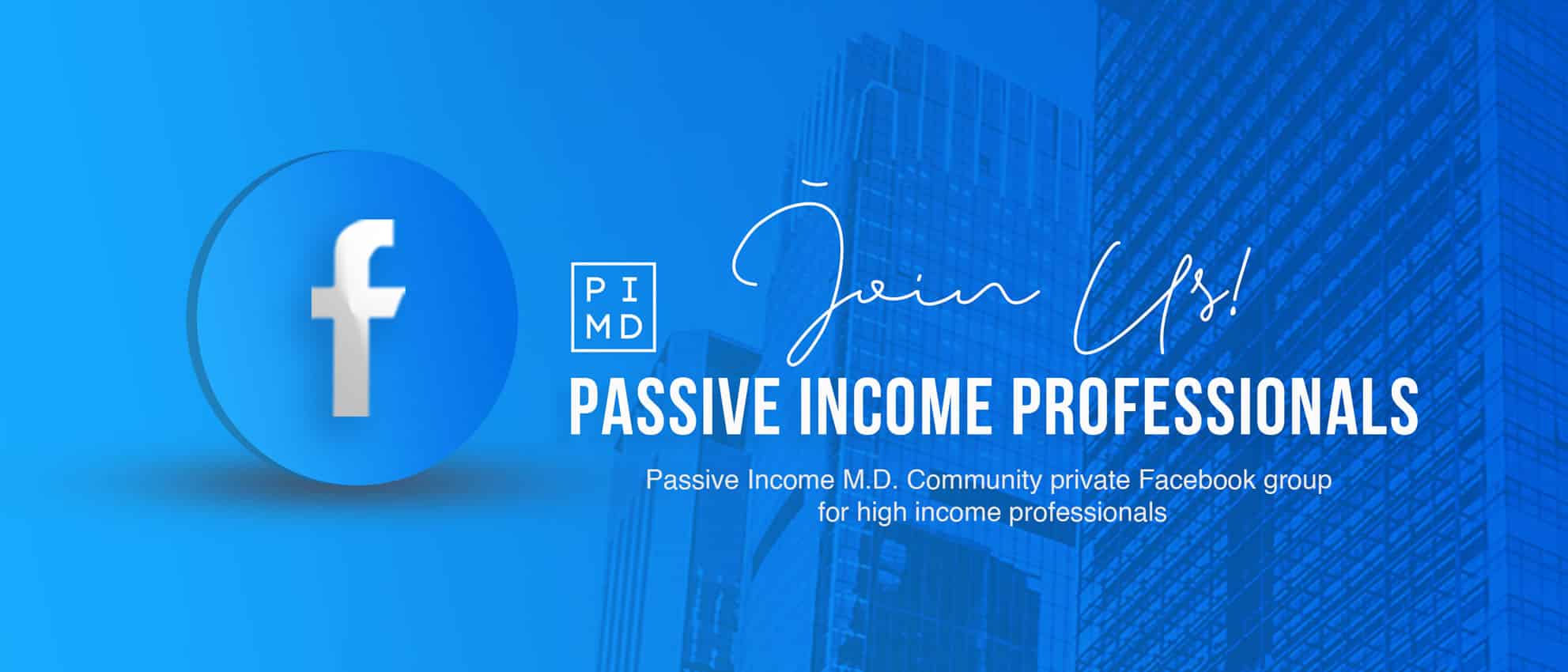
Interview with the CEO of EquityMultiple
This post may contain links from our sponsors. We provide you with accurate, reliable information. Learn more about how we make money and select our advertising partners.
Real estate crowdfunding has gotten a lot of mention on this site and for good reason, I've benefitted quite a bit from my investments through this “new way” of investing in real estate. Access to real estate deals especially when starting out was a challenge, but this all changed with the creation of these platforms.
However, one of the big knocks on investing through online real estate crowdfunding platforms is the loss of that personal touch in real estate, where you get to know operators that you're partnering with. Back in the day, you invested with who you knew. In fact, that was mandated to an extent by the SEC.
So for the benefit of readers, I decided to interview key people at some of these companies in an effort to bring some of the human element back and find out more about their values, direction, and key distinguishing factors. I'm hoping it helps if/when you decide who you're going to invest with.
This is an interview with Charles Clinton, the CEO and Co-Founder of EquityMultiple.
(Disclosure: This is not a sponsored post but I do have an affiliate relationship with EquityMultiple. I have also personally invested in several deals with them.)
Tell us a bit about yourself – what is your background in real estate/finance as well as some of the other major members of your team?
My own background is in real estate law – prior to founding EQUITYMULTIPLE in 2015, I worked for Simpson Thacher, a big law firm here in New York, on some of the largest and most complex transactions in the commercial real estate industry. My law background definitely helps me navigate the fine print of real estate transactions, structure deals and sniff out risk.
My co-founder – Marious Sjulsen, our CIO – came from the private equity world where he headed East Coast acquisitions for a boutique New York real estate investment fund. He has tremendous experience in sourcing and underwriting real estate.
In addition to our internal real estate team, we’ve also partnered with Mission Capital – a national commercial real estate capital markets firm – to help with sourcing good sponsors and investment opportunities. Tapping into the data they’ve built up in their 15 years of business is a competitive advantage for us on the deal side. Overall we have a nice array of complementary skillsets when it comes to real estate experience.
What was the motivation for starting EquityMultiple?
In my final year at Simpson Thacher, I got my bonus and was ready to put it into real estate. When I started to really dig into my options, I was blown away by how difficult it was to find anything other than REITs or buying a property myself, both of which have real drawbacks.
Here I was working on these huge deals but without real access to them myself. Something was off and at that point, I started getting really interested in the JOBS ACT and its potential to really open up the world of commercial real estate investing to new investors.
Our goal in starting EQUITYMULTIPLE was to bring a greater level of access to individual investors, allowing them to invest in the kinds of private commercial real estate transactions that historically have only been available to institutional investors and ultra-high-net-worth investors.
For high-income professionals – doctors, lawyers, folks in tech or sales, small business owners, etc – going out and buying a rental property doesn’t always make sense because it’s management-intensive and not diversified.
On the other hand, private-market real estate investing provides great downside protection and opportunities for yield even in a down market, which is why pensions, endowments, and other institutional investors have historically allocated up to 20% of their portfolio to this asset class.
We started EQUITYMULTIPLE to level the playing field for individual investors and help them build their own diversified portfolios of real estate in a way that fits into their broader financial goals.
What sets EquityMultiple apart from the other real estate crowdfunding platforms out there?
Our diligence practices, our focus on institutional-grade commercial investments, and our customer service. As you might expect, transparency, and being forthright with information and risk factors, is a huge deal for investors.
As folks are considering investing through platforms like ours for the first time, they want to know who they’re getting in bed with (figuratively!) get a comprehensive sense of why and how return projections are modeled out and feel like there are real humans working hard on their behalf who are willing to answer questions – this is the experience we strive to provide.
We’re also backed by a real estate firm with a long operating history (Mission Capital) rather than by traditional venture capital. We feel that this will position us best in the long run to grow responsibly and to maintain quality deal flow through market cycles.
How do you source and vet deals?
Many of our deals come through our combined networks and direct outreach: sponsors and lenders from across the country whose work we know either directly or through industry connections. Our partner company, Mission Capital, has been a great source of referrals. Others come to us organically – the firm looking to raise capital will find us via online search or word-of-mouth.
We do extensive diligence on both the firm that originated the deal and the deal itself. WIth respect to the firm, we’re looking at background checks, references, prior track record, and relevant experience. At the deal level, we look at the local market, the asset itself (structural soundness, renovation history, current tenant mix, etc.), sales and rent comparables in the immediate area, and the originating firm’s pro forma assumptions.
All in all, we evaluate hundreds of factors and bring as much data to bear as possible. In total, we’ve accepted less than 5% of all deals that we have evaluated. For potential investors who would like to learn more about our process we have more information on our website or we’re happy to discuss it by phone.
Many of our readers are hungry to learn more about the industry to make informed decisions – what resources do you recommend for them to get educated?
That’s definitely the right approach. The platforms in our space should do as much as possible to source compelling investments that offer reliably strong risk-adjusted returns. However, all investments carry risk (which vary from investment to investment) and not every investment is appropriate for a given investor’s portfolio. At this point, there’s quite a bit of variety even within the “real estate crowdfunding” industry, so it’s definitely worthwhile for investors to understand their options and shop around a bit.
Sites like this one provide a really nice reference point, because you have first-hand experience investing with these platforms and your readers trust you to endorse only platforms you know about and are comfortable with, and to present balanced information.
While Passive Income MD, for example, is geared toward medical professionals, other bloggers have covered the topic coming from different backgrounds, such as Andrew Savikas over at YieldTalk. Other sites and online communities like CrowdDD and Ian Ippolito’s Real Estate Crowdfunding Review provide some in-depth information about real estate crowdfunding platforms, often drawing on the combined experience of individual investors.
I will say that baseline knowledge of commercial real estate concepts is important for anyone looking to invest in discreet deals through platforms. We make an effort to provide education-minded content on our blog to this effect, and I believe some other platforms also do a good job of offering learning materials.
Can you share the company’s latest stats? How many transactions, returns for investors, the good and the bad, etc.?
Of course. As of this writing, we have closed on 44 transactions across 21 markets. Our investors have contributed more than $30 million to commercial real estate projects with a total aggregate capitalization of over $600 million. Six of our investments have gone full-cycle and repaid principal to investors. All of those have an internal rate of return (IRR) at or above projections and the average is 22%, while 21 are yielding steady cash flow to investors, with 6 more expected to join that group in Q2 2018. The balance are longer-dated equity investments that are still mid-term.
Average net return to date on debt and pref equity is over 10%. This excludes the accrual payments that will be paid out on maturity. Average net returns for all cash-flowing investments – measured from their first payment period – are slightly lower, at around 9%. This number also doesn’t include appreciation and profit from sale for equity investments, which is frequently 50% or more of the total projected return.
Of the 44 investments we’ve funded…
- 4 are significantly underperforming expectation
- 5 are significantly behind schedule
- 5 have or are projected to materially outperform projections
- 30 have or are performing largely in line with underwriting
How do you prepare for the changing landscape of the real estate industry (ie. possible downturn)?
We spend a ton of time thinking about this but I will try to keep this short! We’ve been at the top of the market for quite some time now, and analysts have been predicting a downturn for years. The U.S. economy remains fundamentally strong, so we have no expectations for the bottom to fall out of the market.
However, we are seeing signs of overheating in certain markets, and inevitably the opportunities for yield will begin to dry up in places. The key for investors and for platforms like ours will be broad reach: the ability to source compelling investments across the country as market dynamics shift and new opportunities arise.
We pay a lot of attention to demographic trends because they’re often good predictors of future pricing trends. Whether it's educated millennials moving into cities or baby boomers transitioning into retirement, migration is a powerful indicator.
We’ve also shifted our focus in terms of the type of opportunities we look for – we place a high premium on current cash-flow, rather than long-term appreciation which is inherently more speculative.
We’ve also begun to offer more preferred equity and debt investments, both of which offer lower potential returns than you can achieve on equity deals but have more downside protection built in. While its easier to find good value in a down market, there is always a good investment to be found and the key is trying to find the best opportunity for the moment you’re in.
This is really part of the value proposition of real estate crowdfunding: through our network of firms who originate deals, we’re able to tap into a diverse array of alternative property types and markets and submarkets that most individual investors don’t have exposure to, providing compelling opportunities throughout market cycles.
What can we expect from EquityMultiple in the next year?
We’re focused on growing our team substantially and scaling our deal flow. While we remain committed to quality over quantity and maintaining stringent diligence measures, we are seeing huge demand from investors as folks get more familiar and comfortable with this mode of investing. In order to scale quickly and responsibly, adding more experienced people to the team will be key.
A big part of what we offer to investors is diversification, both into real estate and within the real estate portion of their overall portfolio. To that end, we’ll be offering alternative property types and new investing products, with a continued focus on stable cash flow.
We also have some very exciting items on our technology roadmap, including a more robust portfolio page for performance reports, automated reinvestment options and a range of changes that investors won’t see but that will help us better source and underwrite deals and, indirectly, provide a better investor experience.
[Editor: Thank you again to Charles Clinton for taking the time out to be interviewed. I hope this was informative for everyone.]

Disclaimer: The topic presented in this article is provided as general information and for educational purposes. It is not a substitute for professional advice. Accordingly, before taking action, consult with your team of professionals.



